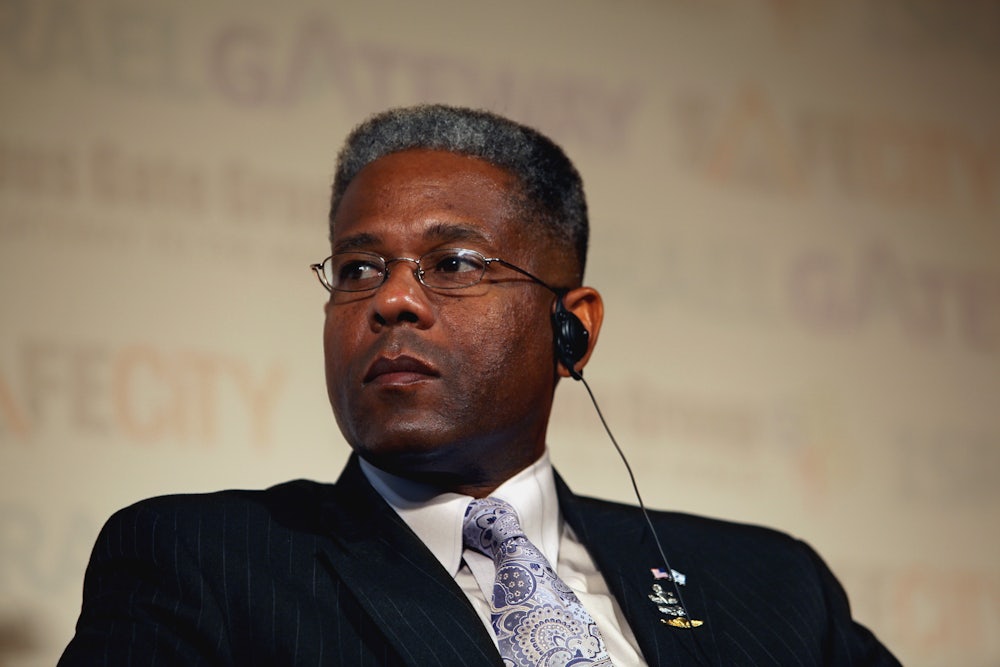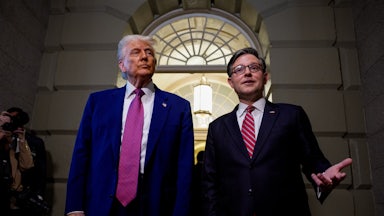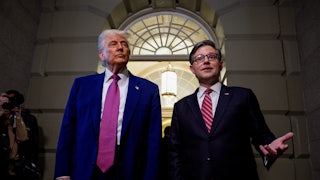The Republican Party is in rough shape. Under President Donald Trump, the GOP has now lost the House, the Senate, and the presidency in just four years—a feat unmatched in American politics since Herbert Hoover’s defeat in 1932. Trump, the party’s leader, now faces a Senate impeachment trial where he could be permanently barred from public office for inciting an insurrection against Congress. As it enters the Biden years, the GOP is effectively rudderless.
Most political parties spend their time in the wilderness replenishing their bench of candidates, rethinking their policy stances, and retooling their message to persuade the electorate at the next election. Republicans, however, seem to be of a different mind on the matter. Beyond the chaos in Washington, GOP state lawmakers are instead floating proposals that would simply make it easier for them to win elections—whether Americans like it or not.
In Wisconsin, for instance, state representative Gary Tauchen introduced a bill that would change how the state allocates its votes in the Electoral College. Wisconsin, like 47 other states in the Union, currently uses the winner-take-all method to award all of its eleven electoral votes to whoever receives a plurality of total votes. Under Tauchen’s bill, the state would instead allocate one electoral vote to whoever wins each of the state’s congressional districts, plus two electoral votes based on the statewide total.
The proposal, if implemented, would be a significant boost to GOP presidential candidates. Wisconsin Republicans carved out a reputation for aggressive gerrymandering over the past decade, effectively locking themselves into power in the state legislature even when Democrats win more of the statewide vote in assembly and state senate races. The state’s GOP leaders routinely claim they would sweep all of the statewide offices as well if it weren’t for cities like Madison and Milwaukee, which is like the Jacksonville Jaguars saying they would be Super Bowl champions if it weren’t for all the other teams. A Michigan lawmaker called for a similar measure this week, arguing it would “remove Detroit’s outsized influence.”
Nebraska is one of the two states that doesn’t use the winner-take-all method, along with Maine. That may soon change. State senator Julie Slama proposed legislation earlier this month that would reimpose the winner-take-all method for choosing Nebraska’s electoral votes, as well as a voter ID measure. In this state, the measure would also likely strengthen future GOP presidential candidates. Nebraska’s second congressional district has given one of the state’s electoral votes to Democratic candidates twice in the past 12 years: to Barack Obama in 2008 and to Joe Biden in 2020. Her bill has the backing of state Republican party leadership.
And then there’s Texas, where Republican leaders have drifted even further to the right in the Trump era. The state GOP chair is currently Allen West, a former House lawmaker who was forced to retire from the Army in 2003 after facing a court-martial for simulating the execution of an Iraqi prisoner. West has embraced a series of anti-democratic and illiberal positions since becoming chair: After the Supreme Court rejected a Texas lawsuit to throw out the 2020 presidential election results, he suggested that “law-abiding states should bond together and form a Union of states that will abide by the constitution,” which many interpreted as a call for secession.
Earlier this week, West used his weekly missive to the party to urge them to aggressively gerrymander the state’s congressional districts during the next round of post-census redistricting, which is set to begin later this year. “Since we maintained a strong majority in both the Texas House and Senate, we control this process,” West noted. “This will shape the political landscape of Texas, and other states, for the next 10 years.”
He counseled, however, that the party use its power to secure itself even more power. “Texas Republicans control this process and must realize this strategic opportunity, and not concern themselves with ‘fairness’ to the progressive socialist left,” he wrote. “I think we are getting a lesson right now in the ruthlessness of the left. We can ill afford to be Neville Chamberlains and believe that appeasement, compromise, and acquiescence to the leftists are viable courses of action.”
West’s message came as Texas exited a decade of sustained legal battles over its Republican-favoring legislative maps. The Supreme Court’s conservative majority recently ruled that federal courts can no longer hear cases on extreme partisan gerrymandering, freeing state lawmakers around the country to pursue it even more aggressively this time. And while states are still forbidden from gerrymandering along racial lines, they will face a more favorable bench in federal courts than in the past when defending their maps from such challenges.
On policy grounds, Republicans face an uphill battle to reclaim national political power over the next four years. Polls show that Americans increasingly favor more welcoming immigration policies. They want deeper reforms for police departments around the country and a greater role for the federal government in health care. They overwhelmingly want marijuana to be legalized and universal background checks imposed for firearm purchases. The Republican Party could always bring its policy stances more in line with what voters want, as they thought about doing after the losses in 2008 and 2012. But they seem more likely to force the voters to either fall in line with their increasingly unpopular policies or live as electoral vagabonds.








